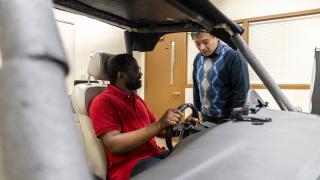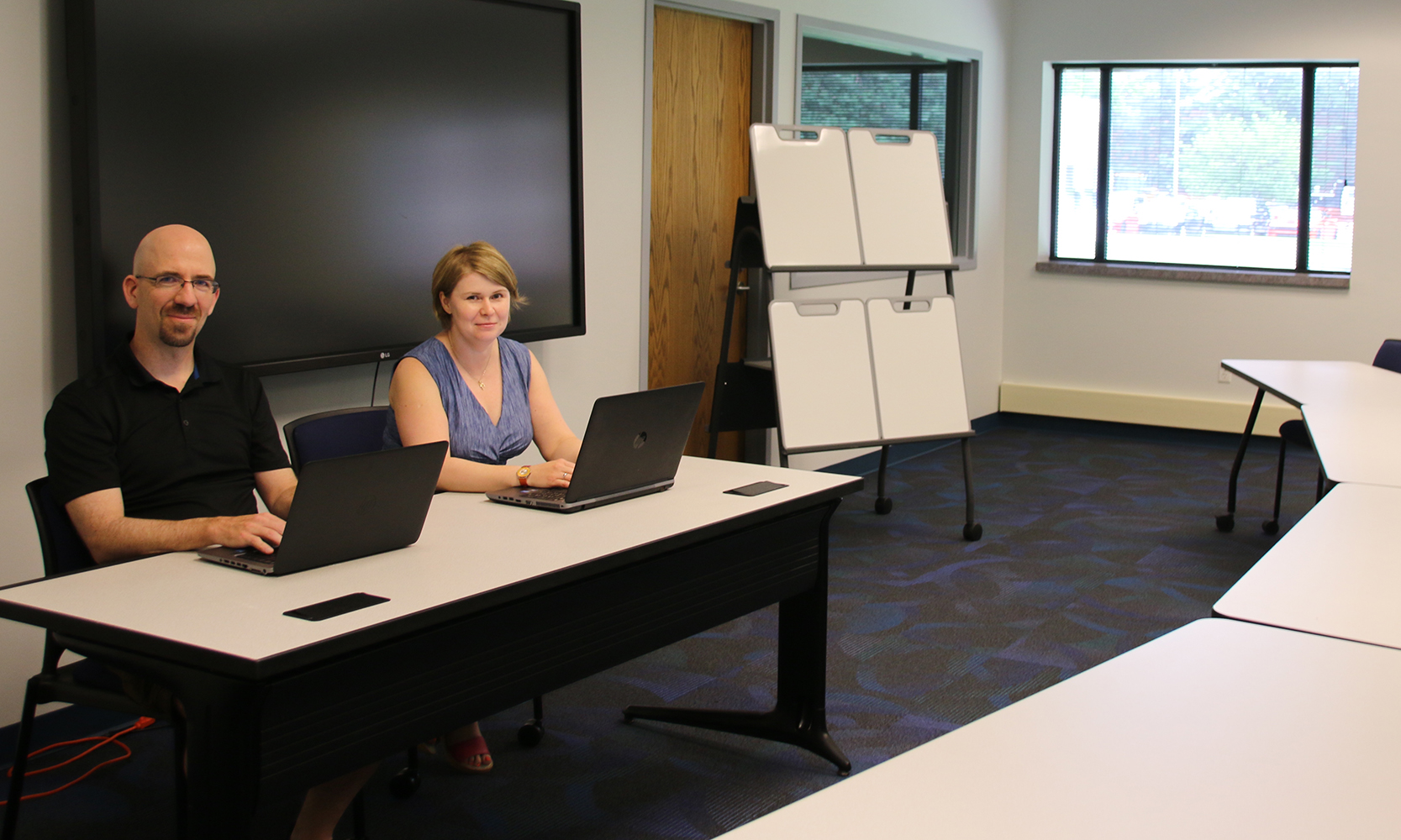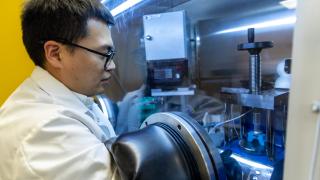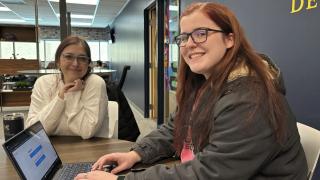
When it comes to doing the right thing, what motivates people?
A new campus space in the Social Sciences Building explores that question. The Behavioral and Experimental Economics and Policy (BEEP) Lab will be used as both a classroom and research space starting this fall.
BEEP Lab Associate Director and Economics Assistant Professor Hans Czap said the lab provides a space and equipment for faculty and students interested in experimental economics methods and the behavioral economics approach to study economic behavior and offer recommendations to decision-makers.
“If we can nudge people to do ‘the right thing’ when it comes to environmental issues instead of adding regulations and enforcement, it is more effective—financially and otherwise. That is the key to creating change and getting policy makers interested in the research—creating synergy from the combination of different incentives, pecuniary and non-pecuniary,” he said. “At times people behave irrationally or act on their emotions and values, which most theoretical economic models cannot readily predict. Economic experiments allow us to study empirically what motivates behavior in real life.”
For example, when encouraging environmental conservation, what is more motivating: a monetary fine or emotional feedback?
“We saw the importance people place on social approval. Avoiding social disproval is a very motivating factor. Our key finding was that both financial incentives and empathetic considerations are important in pro-environmental decisions,” said BEEP Lab Director and Economics Associate Professor Natalia Czap, who has been conducting behavioral experiments for years but had to use other university labs because she previously didn’t have an on-campus space. “When it comes to empathy or emotional behavior, there isn’t a data set that you can download and use in your research, so you have to create one. That is why these experiments are so valuable.”
The BEEP Lab—complete with flexible seating, detachable white boards, multiple laptop stations and large interactive instructor/demonstration screen—will allow UM-Dearborn students to have more hands-on research opportunities.
Social Sciences Chairman and Political Science Associate Professor Dale Thomson said these facilities will also make it easier for faculty to run classes that rely significantly on small-group, interactive learning experiences.
“It's a great example of the Social Sciences department using donor and departmental funds creatively to serve multiple needs of its students and faculty,” he said, noting support from Kevin Verner (’80 B.A.), owner of Shell Ring Associates.
Natalia Czap, who came to campus in 2009 as a behavioral environmental economist, said the lab is a dream come true.
“With this space, we can show we have the capacity to conduct economic experiments, which will help us to attract funding, form community partnerships, gather important and interesting data and get recognition for the university.”




